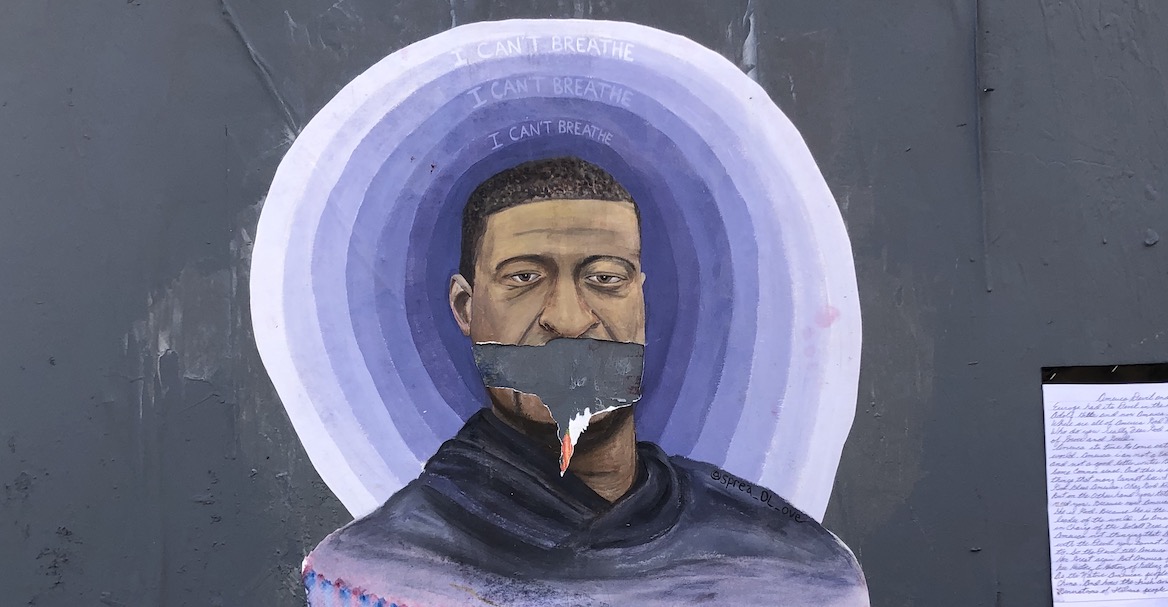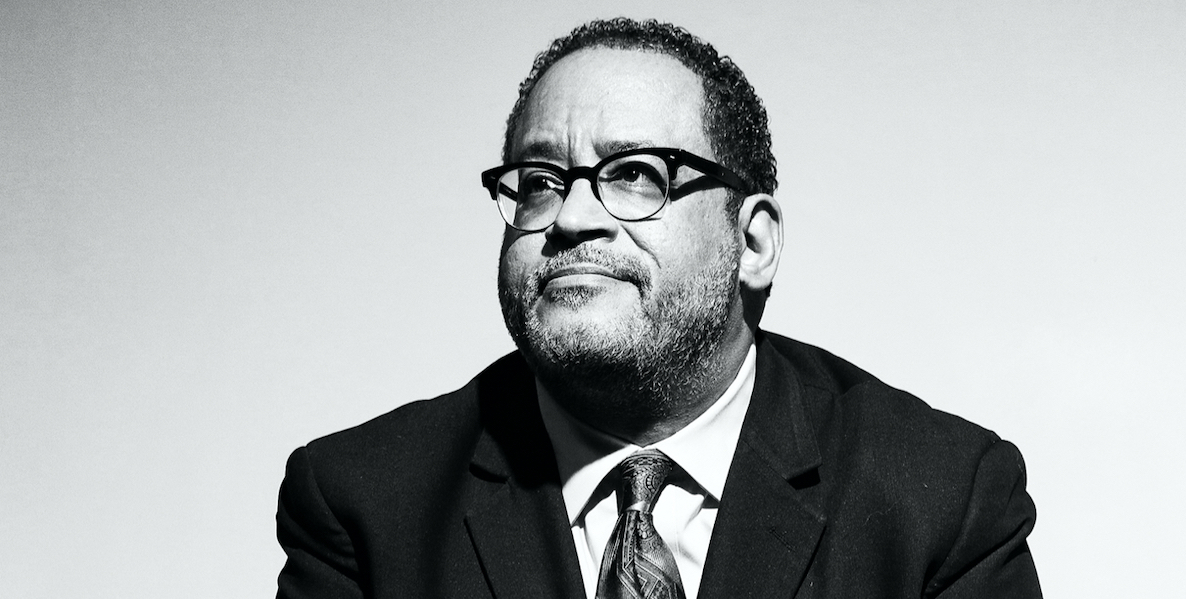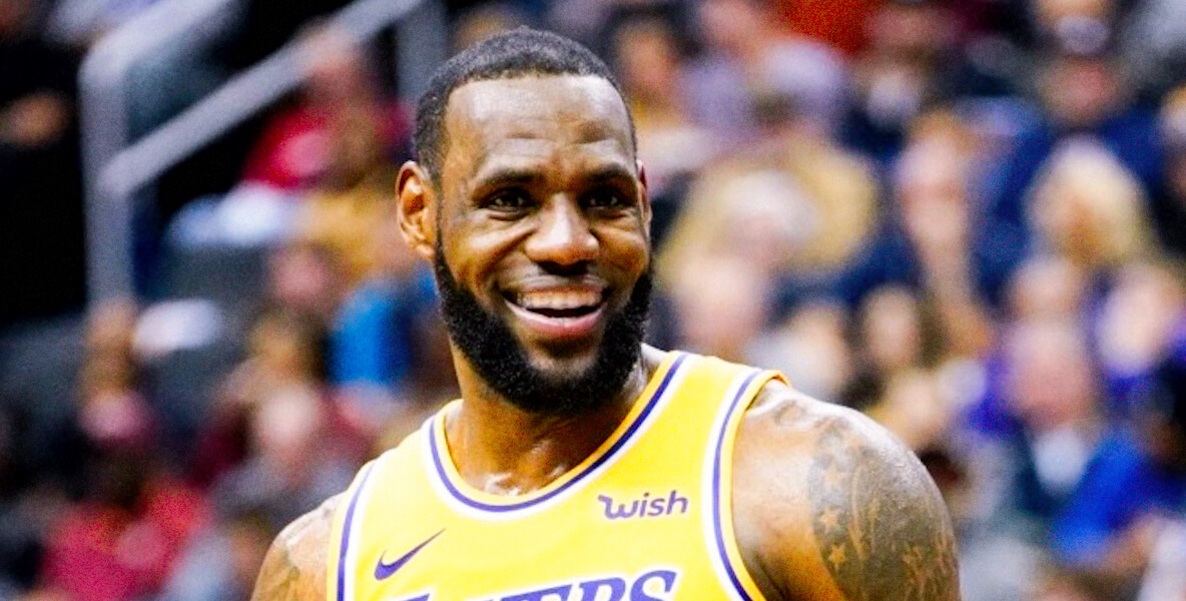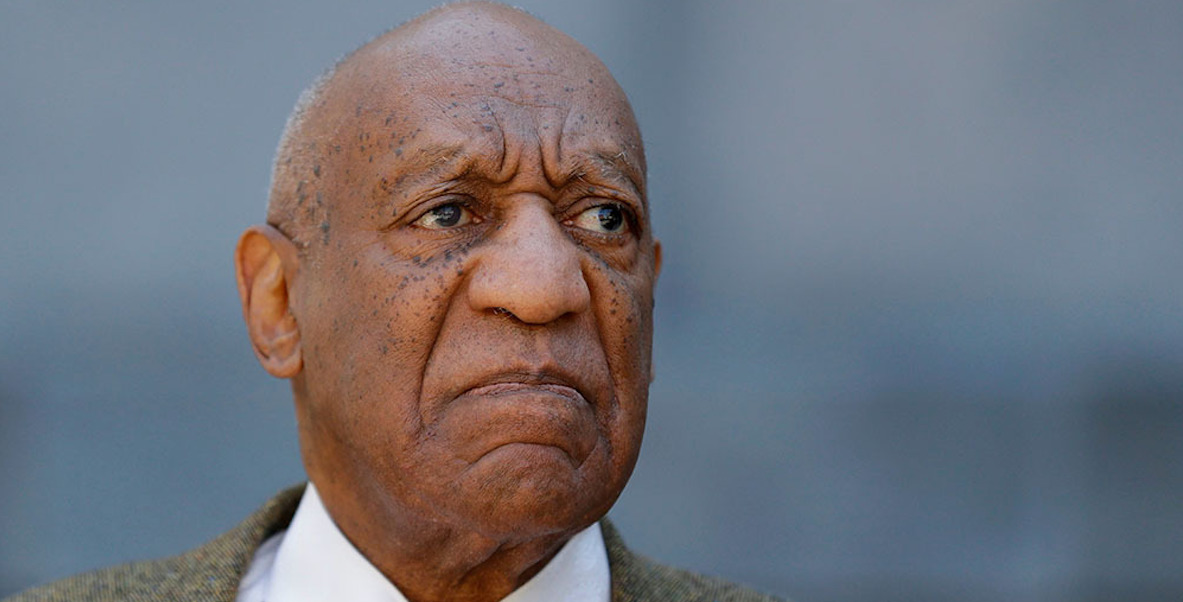![]() Have you heard about this “21-day antiracist cleanse” that is sweeping the country? Google it—a bunch of examples will pop up. In Delaware, for example, the Racial Equity and Social Justice Collaborative, in concert with the United Way and YWCA, offers a “journey of self-discovery that you can complete online.”
Have you heard about this “21-day antiracist cleanse” that is sweeping the country? Google it—a bunch of examples will pop up. In Delaware, for example, the Racial Equity and Social Justice Collaborative, in concert with the United Way and YWCA, offers a “journey of self-discovery that you can complete online.”
Here’s how it works: “Registered participants are prompted with a daily e-mail challenge—such as reading an article, listening to a podcast, or watching a video–and are then encouraged to reflect on that content and to relate the situation to their own lives. Participants discover how racial inequity and social injustice impact our community. The goal is to build new understandings and new connections and in so doing, to begin dismantling systemic racism in Delaware.”
Now, here at The Citizen, we have a saying: We’re in favor of what works, and against what doesn’t. It is said that it takes 21 days to establish a habit, so if, in a matter of three weeks, reading an excerpt of Ibram Kendi’s How To Be An Antiracist or Robin DiAngelo’s White Fragility—two mainstays of the cleansing curricula—can get you to confront your own implicit biases, I’m cheering for you. You get an A for effort.
![]() But there is something just a bit too pat about it, no? Maybe I’m just a Social Justice Worrier, but my concern is that, if we start treating racial reckoning like the latest fad diet, we’ll never really get to the harder work of systems change.
But there is something just a bit too pat about it, no? Maybe I’m just a Social Justice Worrier, but my concern is that, if we start treating racial reckoning like the latest fad diet, we’ll never really get to the harder work of systems change.
Last week, in a critique of the NBA players’ walkout, I posited a stunning fact: There are 5,000 banks in America, and only 21 are owned by African Americans. I’m all for individuals embarking on journeys of self-discovery, but if that’s all you do, we run the risk of creating the illusion of progress.
I’m an economic determinist. I’ve attended my share of marches through the years; now I’d like to finally see inner-city Black entrepreneurs gain access to capital and the rates of Black employment start to catch up to that of whites.
As I’ve mulled over this phenomenon—the wonderful surge in racial awareness among white people in the aftermath of George Floyd’s murder, combined with and juxtaposed against the need to address systemic root causes—I’ve often found myself wondering, What Would Dyson Say?
![]() Dyson, of course, is bestselling author, professor, preacher and public intellectual Michael Eric Dyson, long one of the nation’s most insightful thinkers on race. (It was announced this week that Dyson, late of Penn and, most recently, Georgetown, has been named the Centennial Chair and University Distinguished Professor of African American and Diaspora Studies at Vanderbilt University.)
Dyson, of course, is bestselling author, professor, preacher and public intellectual Michael Eric Dyson, long one of the nation’s most insightful thinkers on race. (It was announced this week that Dyson, late of Penn and, most recently, Georgetown, has been named the Centennial Chair and University Distinguished Professor of African American and Diaspora Studies at Vanderbilt University.)
Dyson is a longtime friend, and a friend of The Citizen. (Check him out in this video from our 2018 Ideas We Should Steal Festival.) Turns out, his latest work, Long Time Coming: Reckoning with Race in America, is due out in December.
I urge you to pre-order it from Uncle Bobbie’s, the Germantown bookstore owned by our mutual friend Temple professor Marc Lamont Hill, because, as I’ve written before, few thinkers on the public stage speak to all sides of our tragic racial melodrama with such empathy and practicality.
Over the past couple of weeks, in a series of conversations, Dyson and I have rolled around the moment we’re in, and his view of how this reckoning can lead to redemption. Here’s an edited and condensed transcript of our conversation, which began with my concern that, in the age of the 21-day cleanse, the momentum of this moment runs the risk of being squandered.
Larry Platt: I’m getting concerned that what you call a reckoning will ultimately be a passing fad.
Michael Eric Dyson: Look, my wife, the Rev. Marcia Dyson, says that this feels like ‘Black Christmas’ right now. [Laughs] We got white folk pulling down confederate statues and buying books about race by Black authors. That’s both a humorous and tongue-in-cheek point, but there’s something to it, right? ‘Cause this ain’t going to last forever.
We do have to maximize the opportunity while we’re here. But look, man, in my new book, I talk about how there are different levels of allyship. I got mad love for those white folk doing that cleanse you talk about, ‘cause that’s an important first step. You have to start where you are. I’m a preacher. When Jesus met that woman at the well, there was no big sermon, no conversion to get rid of her sins. What’d he say? ‘Hey, can I have a drink of water?’ He met her at the level of the bucket.
We’ve talked about this before. I know you get frustrated about symbolism—
LP: Because just taking down a statue is easier than real change—
MED: Yeah, I get it, but symbols are important, man. If you’re Black and you see a statue of Robert E. Lee standing there in the town square, there don’t need to be a conversation. You’re being told your life doesn’t matter, you feel me?
We need engaged white folk putting pressure on to get the change you want to see, because that removes the ugly burden of Black people demanding it themselves. That’s why I’m always saying we can’t kill a white brother or sister who makes a mistake.
You can make reparation at the local or individual level: You can hire Black folk at your office and pay them just a little bit more than you would normally. Or you can pay the Black kid who cuts your grass double what you might ordinarily pay. Think of your IRA as a secular tithe.
I talk about this in the book. When it came out that Virginia Governor Ralph Northam wore blackface in college, folks in Virginia reached out to me and I said there’s nothing better for Black progress than to forgive white folks who make a mistake. Let’s not cancel them. Now, Governor Northam has made racial justice the priority of his governorship.
LP: Yeah, I remember you writing about the ultimate white ally, LBJ—
MED: That’s my favorite president right there. I know people say ‘redneck racist from Texas,’ well, that redneck racist from Texas—yeah, he was—did more for Black people than any president in American history. I’m willing to argue that—even more than Lincoln.
He had the perfect Trifecta: The Civil Rights Act of 1964, the Voting Rights Act of 1965, and the Fair Housing Act in the aftermath of King’s death. Now, it was because of public pressure brought to bear by King, John Lewis, Diane Nash, and the like. But as president, LBJ was strong-arming people in the Senate to get the job done.
LP: In private, Johnson used terrible racial epithets. But that gets to the definition of what racism is, which we never really talk about. There’s a difference between prejudice and racism—the institutional manifestation of prejudice. I care less about Johnson’s personal prejudice than how he used his public power.
MED: No doubt. Look, would I prefer both? Would I prefer, hey, don’t call me the N word and don’t use your power to reinforce people’s subjugation? Of course. Individual prejudice needs to be opposed. Black people can be biased, we can be full of hate for another group, but your point is: But do you have power? African Americans did not have a law that said they could lynch white people and not be taken to court. Racism is about that institutional mechanism that allows your individual preferences to be seen as law.
We need engaged white folk putting pressure on to get the change you want to see, because that removes the ugly burden of Black people demanding it themselves. That’s why I’m always saying we can’t kill a white brother or sister who makes a mistake.
Now, I’ll say this, a lot of white brothers and sisters say, white privilege? I don’t have white privilege—I’m just as poor as you—
LP: I’ve said that—in the context of those white working class voters in McComb County, who voted for Trump after voting for Obama twice. I suspect they were, like, I got your white privilege right here when they pulled that lever.
MED: Right, but the point is, white privilege doesn’t mean all white folk are rich. It means that the people who tend to be rich will be white. It means that when you’re driving and you get pulled over, you don’t get shot.
LP: Or don’t fear getting shot.
MED: So true, so true.
LP: I’m still hung up on what I see as the emphasis on the symbolic versus the systemic. When I wrote that piece last week about the missed opportunity of the NBA walkout, a lot of really smart folks called me on my privilege for criticizing Black athletes who were, after all, taking a stand. So I’m struggling with how we harness all this energy and get to substantive change.
MED: You’re right, we’ve got to get beyond symbolism—D.C. statehood, where I am, is nothing but taxation without representation. The prison industrial complex. The average wealth of Black families versus white families. These are systemic issues—and anything with ‘system’ in its name is ripe for reform: School system, criminal justice system, economic system.
I got mad love for what LeBron and others are doing, but what you’re saying is critical and important. You’re right, there are so many other things to be done. Your point about putting our money in Black banks, that’s where Malcolm and Martin converge.
But this is where Starsky & Hutch comes in, remember them? It’s a yes/and, not an either/or. We need stick and carrot.
LP: Jesse Jackson used to say, ‘There are jelly makers, and there are tree shakers.’ Your point is change demands both?
MED: No doubt, and we need conscientious white allies saying we gotta do more. You can critique LeBron, but where’s Mark Cuban on Black banks?
LP: There are a couple of things that I think sets your writing apart from the new generation of antiracist thinkers. They still center the issue around white narcissism—the curriculum is mostly about white folk looking inward and coming to terms with their privilege. You always seem to combine that with practical, everyday advice for white allies about how to be in the world.
In Tears We Cannot Stop: A Sermon to White America, you have an exchange with an earnest young white ally, and you write: I asked him not only to challenge white privilege, but also to resist the narcissism that celebrates one’s challenge to whiteness rather than siding with those who are its steady victims. That really speaks to me. Later in the book, a chapter lays out a roadmap for how white allies can be engaged, and it’s all very practical stuff. I love your idea of an IRA — an Individual Reparations Account.
MED: It’s mind-blowing that reparations are part of the conversation now, right? People think, ‘Oh, you’re going to give Black people a bunch of money they don’t deserve.’ Bruh! We worked for free for 250-odd years. If you give me the overtime alone, I’m good.
Reparations have been paid in America, but they were paid to white owners of enslaved African people in America. And we did it for Japanese Americans in World War II and for our Jewish brothers and sisters in Germany after the Holocaust. Reparations doesn’t mean giving Black people a bunch of money—but if you want to try it that way, I’m down. The point is, how can you compensate people intellectually for what you did?
White privilege doesn’t mean all white folk are rich. It means that the people who tend to be rich will be white. It means that when you’re driving and you get pulled over, you don’t get shot.
My point is, give your resources where you are. A guy wrote to me and said I read your book about IRAs, and I decided not to wait for the government to pass reparations. This sounds like charity, yes. But, he said, I saw a school that needed 25 computers—they were Black kids—and I went over there and I gave that school 25 computers. That’s my point—you can find practical ways to translate an ethic of concern for the other as an individual.
You can make reparation at the local or individual level: You can hire Black folk at your office and pay them just a little bit more than you would normally. Or you can pay the Black kid who cuts your grass double what you might ordinarily pay. Think of your IRA as a secular tithe.
LP: You also suggest that, at sporting events, we should honor veterans of the Civil Rights Movement the same way we honor military veterans during the playing of the national anthem.
MED: Absolutely. Are you telling me John Lewis didn’t deserve that? Diane Nash didn’t deserve that? Andrew Young? They went to war for the best part of their country. Recognizing people at sporting events as heroes would be a way to endorse the Civil Rights Movement as something that powerfully made America better.
LP: I’m also struck by the degree to which your writing underscores for me the simple power of story. Stories change the world. I think back to one scene—I think it was in Tears—when you take your young son with you to the bank to get a cash advance on your MasterCard. And what happens is heartbreaking, and has stayed with me to this day.
MED: Oh, yeah, that’s when I was at Princeton. My son wasn’t even 10 yet. Man, that was hurtful. My account was in good standing, but they cut up my card right in front of him. I still remember the feeling of humiliation of what felt like having my manhood snipped before a leering crowd of onlookers who saw only an enraged and deflated Black man.
LP: Your son started crying, and that’s the part that got me. Because it spoke to the perpetuation of generations of psychic trauma. But the fact that I still think about it—you brought me to an empathetic place.
MED: That’s why we’ve got to tell these stories, man. Structural systems issues are mediated through narrative. Issues are abstract. When they broadcast sporting events, that’s what all those profile pieces about the athletes are really about —using stories so people feel closer to them. When you humanize someone, you feel their pain.
LP: And that’s what I find missing in modern-day antiracist curricula—the stories that can transport us to a more empathetic place. In Tears, you provide an in-depth reading list. It’s lengthy, but make a couple of recommendations.
MED: Number one is the GOAT, James Baldwin. The Fire Next Time. Undeniable. Painful. Searing. It consists of two letters—one to his nephew, the other to America. He just breaks it down.
Number two would be Beloved, by Toni Morrison. She takes the enslaved condition of African people in America and wrestles with it in a powerful novel.
Number three would be Invisible Man, by Ralph Ellison. The dominant metaphor is the invisibility of Blackness, and what it means not to be seen. “I’m invisible not because I’m invisible, but because people refuse to see me”—that’s on page four.
LP: Can I add one? The Warmth of Other Suns, the story of the 20th Century Black migration north. You read this and realize we basically missed the biggest story of the 20th Century.
MED: Oh, man, Isabel Wilkerson—who’s a better writer in America than Isabel Wilkerson? I don’t know. She’s got a new one out, Caste. But you’re right, Warmth of Other Suns. In 1910, 90 percent of Black people lived in the south. My parents, Momma from Alabama, Daddy from Georgia, were drawn to Detroit because of the automobile industry, right?
![]() Think about this. The Black folk from North Carolina went to New York; Mississippians went to Chicago; and Blacks from Louisiana and Texas headed to Los Angeles. That’s why Snoop Dogg talks like that, or Nipsey Hussle, that Louisangeles accent. So, yeah, that book is an extraordinary chronicle of the pain, the heartache, and the suffering that Black people endured as they fanned out from the south.
Think about this. The Black folk from North Carolina went to New York; Mississippians went to Chicago; and Blacks from Louisiana and Texas headed to Los Angeles. That’s why Snoop Dogg talks like that, or Nipsey Hussle, that Louisangeles accent. So, yeah, that book is an extraordinary chronicle of the pain, the heartache, and the suffering that Black people endured as they fanned out from the south.
LP: One last thing. I recently heard you describe yourself as a “light skinned African American with curly hair,” and you know I’m a stickler for accuracy. That’s thinning hair these days.
MED: Ah, man, that’s some follicular jealousy right there, my man.
LP: Will you visit so we can sell some of your books when Long Time Coming comes out?
MED: Let’s do it.








